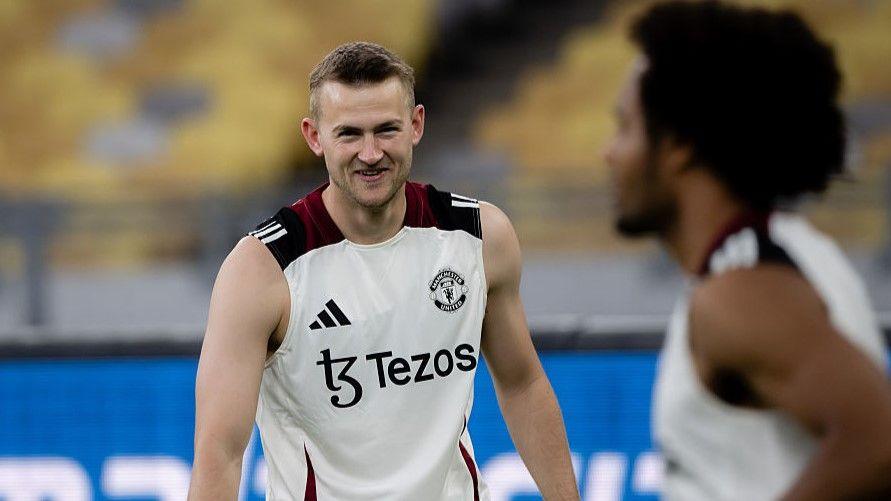Matthijs de Ligt, the Manchester United defender, recently expressed his support for manager Ruben Amorim, commending his straightforward communication style. De Ligt believes that Amorim’s candid approach will ultimately prove advantageous for the club as they navigate a turbulent phase following a disappointing season.
Ruben Amorim, who took the helm at Manchester United in November, has faced significant challenges, especially in securing victories and improving team performance. Notably, Amorim has made headlines with his stark remarks regarding the team’s performance, indicating that the players must confront uncomfortable truths about their capabilities and commitment. After a humiliating 3-1 loss to Brighton, he characterized the team as “probably the worst in Manchester United history,” showcasing his willingness to call out subpar performances directly.
Following a disappointing defeat in the Europa League final against Tottenham, Amorim further stirred debate by suggesting he might step down if the club’s management or fans deemed it necessary. He was particularly vocal on a post-season tour of Asia, where he criticized his players as “chokers” after a shocking loss to a Southeast Asian select XI. These statements illustrate a manager who is not afraid to confront issues head-on, a bold stance that can be polarizing but, according to De Ligt, is necessary for the team’s growth.
De Ligt, who previously led Ajax to the Champions League semi-finals, embraces a direct approach, especially as a Dutch player in a football culture known for its forthrightness. He expressed his appreciation for Amorim’s candor, noting that it creates an atmosphere of trust between the manager and players. “I’m from Holland so I like it,” De Ligt remarked, indicating that he values the honesty displayed by his coach.
The context surrounding Amorim’s statements is critical, as Manchester United is grappling with the aftermath of what has been labeled the worst domestic season since 1973-74. The failure to secure a spot in the Champions League due to the critical loss against Tottenham means the team will miss out on lucrative European football next season—a rarity since teams in England returned to UEFA competitions in 1990. With just seven victories in the Premier League since his arrival, Amorim’s future hinges on the ability to transform the squad dramatically as the new season beckons.
De Ligt maintains that despite current setbacks, the groundwork being laid by Amorim will yield significant benefits. He emphasized the importance of cohesion within the team, asserting that previous seasons might have boasted star players but lacked the unity and teamwork necessary for success. “I think he wants to build a team of players who are together, fighting for each other,” De Ligt explained.
This sentiment echoes a broader understanding that managerial strategies in football go beyond tactical approaches; they also encompass team culture and player mentality. Amorim’s focus on integrating new signings within the team’s culture and fostering a fighting spirit among players suggests a long-term vision that might stabilize the club in the future.
De Ligt expressed confidence in Amorim’s ability to see what changes need to be made and to revitalize the club’s ambitions. As Manchester United prepares for a fresh start, the outlook hinges on whether Amorim’s forthrightness and emphasis on unity will translate into on-field success in the upcoming season. The task at hand is daunting, but both De Ligt and fans remain hopeful that the blunt truths will pave the way for renewed vigor and competitive spirit in the storied club’s quest for redemption in football’s fierce arena.



